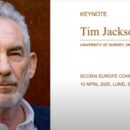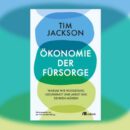
Image © Frozenbunn / canva.com
Research | Measuring Progress
Every society has a cultural myth by which it lives. Ours is the myth of economic growth. So long as the GDP continues to rise, we feel safe in assuming not just that we are doing well, but that we are living better than our parents or our grandparents did; that we are progressing – not just as individuals but as a society; and that the world will be a brighter, shinier place for our children and for their children.
One of the roles of cultural myth is to furnish us with a sense of meaning and provide continuity in our lives. But a society that allows itself to be steered by a faulty myth risks foundering on the shores of harsh reality and it is scarcely news, of course, that GDP is not a very good measure of progress. In March 1968, the late Senator Robert Kennedy warned that the GDP ‘measures neither our wit nor our courage, neither our wisdom nor our learning, neither our compassion nor our devotion to our country. It measures everything, in short, except that which makes life worthwhile.’
Fascinated by the attention paid to the GDP, despite its shortcomings, and its evident power in arbitrating decisions about environmental management, Tim began to look for alternative measures. He was drawn early on to Daly and Cobb’s ‘Index of Sustainable Economic Welfare’. For over a decade he collaborated with colleagues in the UK and overseas to apply the same measure to the UK, to the English regions, to Sweden and to the global economy, and to develop the underlying basis for adjusted GDP measures.
The lessons from these analysis were surprisingly consistent. Despite a close alignment with GDP until the mid-1970s, adjusted measures of economic progress tend to flatten out in the later years, as the costs of economic growth become more apparent. These findings were certainly influential in informing Tim’s inquiry into the relationship between prosperity and economic growth for the Sustainable Development Commission. As Economics Commissioner he was also a founder member of the Whitehall Working Group on Wellbeing, which in 2007 pioneered the development of the first ‘wellbeing accounts’ for the United Kingdom.
Further reading
Jackson, T 2020. Wellbeing Matters—Tackling growth dependency. An Economy That Works Briefing Paper Series, No 3. London: All-Party Parliamentary Group on Limits to Growth, February 2020.
Corlet Walker, C and T Jackson 2019. Measuring Prosperity—Navigating the Options. CUSP Working Paper No 20. Guildford: University of Surrey.
Kubiszewski I, Costanza R, Franco C, Lawn P, Talberth J, Jackson T and Camille Aylmer 2013. Beyond GDP: Measuring and achieving global genuine progress. Ecological Economics 93: 57–68.
Jackson, T and N McBride 2005.Measuring Progress? A review of adjusted measures of economic welfare in Europe. Report for the European Environment Agency. Guildford: University of Surrey.
Jackson, T 2004. Chasing Progress–Beyond Measuring Economic Growth. London: New Economics Foundation.
Jackson, T 2002. Quality of Life, Sustainability and Economic Growth. In: Cahill, M and A Fitzpatrick (Eds): Environment and Welfare: towards a green social policy, Palgrave Macmillan, London, 97-116.
Jackson, T and S Stymne 1996. Sustainable Economic Welfare in Sweden: A Pilot Index 1950-1992. Stockholm Environment Institute.





